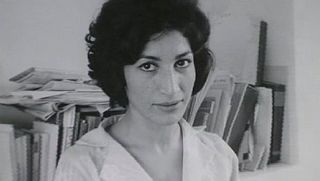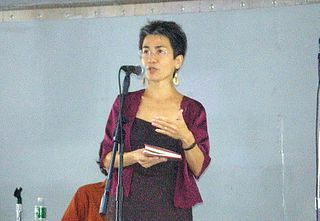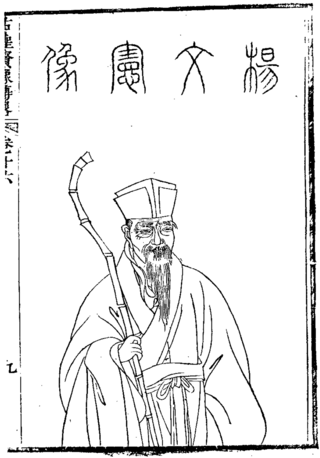
Sylvia Plath was an American poet, novelist, and short story writer. She is credited with advancing the genre of confessional poetry and is best known for two of her published collections, The Colossus and Other Poems (1960) and Ariel (1965), and also The Bell Jar, a semi-autobiographical novel published shortly before her suicide in 1963. The Collected Poems was published in 1981, which included previously unpublished works. For this collection Plath was awarded a Pulitzer Prize in Poetry in 1982, making her the fourth to receive this honour posthumously.

Adrienne Cecile Rich was an American poet, essayist and feminist. She was called "one of the most widely read and influential poets of the second half of the 20th century", and was credited with bringing "the oppression of women and lesbians to the forefront of poetic discourse". Rich criticized rigid forms of feminist identities, and valorized what she coined the "lesbian continuum", which is a female continuum of solidarity and creativity that impacts and fills women's lives.
Daphne Marlatt, born Buckle, CM, is a Canadian poet and novelist who lives in Vancouver, British Columbia.
Judy Grahn is an American poet and author.

Forugh Farrokhzad was an influential Iranian poet and film director. She was a controversial modernist poet and an iconoclastic, feminist author. Farrokhzad died at the age of 32 due to a car accident.

Alicia Suskin Ostriker is an American poet and scholar who writes Jewish feminist poetry. She was called "America's most fiercely honest poet" by Progressive. Additionally, she was one of the first women poets in America to write and publish poems discussing the topic of motherhood. In 2015, she was elected a Chancellor of the Academy of American Poets. In 2018, she was named the New York State Poet Laureate.

Kimiko Hahn is an American poet and distinguished professor in the MFA program of Queens College, CUNY. Her works frequently deal with the reinvention of poetic forms and the intersecting of conflicting identities.

Paula Gunn Allen was an American poet, literary critic, activist, professor, and novelist. Of mixed-race European-American, Arab-American, and Native American descent, she identified with her mother's people, the Laguna Pueblo. Gunn Allen wrote numerous essays, stories and poetry with Native American and feminist themes, and two biographies of Native American women. She edited four collections of Native American traditional stories and contemporary writing.
Jacqueline Rose, FBA, FRSL is a British academic who is Professor of Humanities at the Birkbeck Institute for the Humanities.

Yang Shen was a poet in the Chinese Ming dynasty. His courtesy name was Yongxiu (用修); his art names included Sheng'an (升庵), Bonan Shanren (博南山人) and Diannan Shushi (滇南戍史).
"Mad Girl's Love Song" is a poem written by Sylvia Plath in villanelle form that was published in the August 1953 issue of Mademoiselle, a New York based magazine geared toward young women. The poem explores a young woman's struggle between memory and madness. She wrote this poem as a third-year undergraduate at Smith College and described it as being one of her favorite poems that she had written. However, the poem was never republished or found in any of Plath's later collections during her lifetime. After her suicide, "Mad Girl's Love Song" appeared in the afterword of the reprint of The Bell Jar.
Nellie Wong is an American poet and activist for feminist and socialist causes. Wong is also an active member of the Freedom Socialist Party and Radical Women.

Xue Tao, courtesy name Hongdu (洪度/宏度) was a Chinese Yiji and poet of the Tang dynasty. She was one of the most famous women poets of Tang poetry, along with Yu Xuanji and Li Ye.

Annie Finch is an American poet, critic, editor, translator, playwright, and performer and the editor of the first major anthology of literature about abortion. Her poetry is known for its often incantatory use of rhythm, meter, and poetic form and for its themes of feminism, witchcraft, goddesses, and earth-based spirituality. Her books include The Poetry Witch Little Book of Spells, Spells: New and Selected Poems, The Body of Poetry: Essays on Women, Form, and the Poetic Self, A Poet's Craft, Calendars, and Among the Goddesses.
Tracy Ryan is an Australian poet and novelist. She has also worked as an editor, publisher, translator, and academic.

"Ariel" is a poem written by the American poet Sylvia Plath. It was written on her thirtieth birthday, October 27, 1962, and published posthumously in the collection Ariel in 1965. Despite the poem's ambiguity, it is understood to describe an early morning horse-ride towards the rising sun. Scholars and literary critics have applied various methods of interpretation to "Ariel".
Feminist revisionist mythology is feminist literature informed by feminist literary criticism, or by the politics of feminism more broadly and that engages with mythology, fairy tales, religion, or other areas.
Despite a long-held belief in pre-modern China that women lacked literary talent, women's works – particularly poetry – did win a degree of respect within Chinese literature during the Imperial period. During the first half of the 20th century, writing by women reflected feminist ideas and the political upheavals of the time. Women writers conveyed expression from a feminine perspective, as opposed to man writers who conveyed expressions from a masculine perspective.
Feminist poetry is inspired by, promotes, or elaborates on feminist principles and ideas. It might be written with the conscious aim of expressing feminist principles, although sometimes it is identified as feminist by critics in a later era. Some writers are thought to express feminist ideas even if the writer was not an active member of the political movement during their era. Many feminist movements, however, have embraced poetry as a vehicle for communicating with public audiences through anthologies, poetry collections, and public readings.









